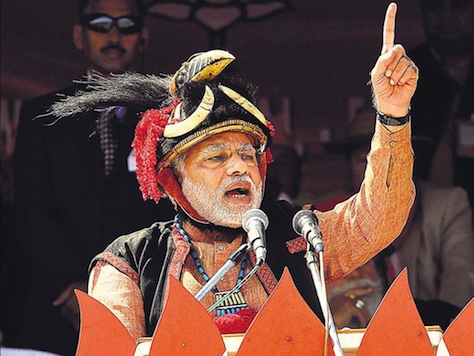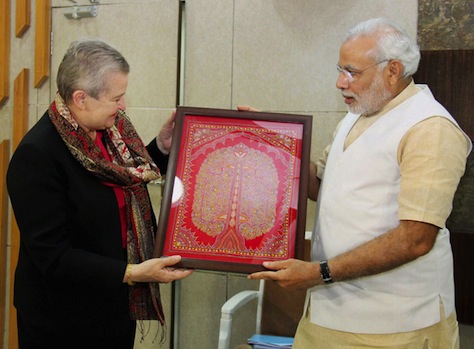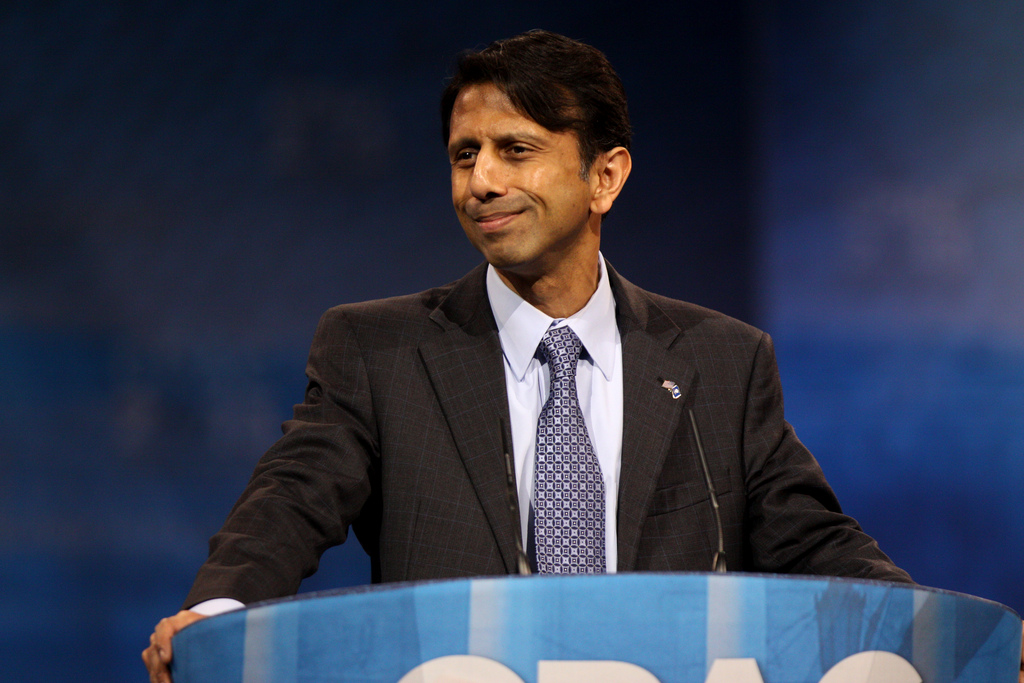I write tomorrow in The National Interest about US-India relations — why they’re at such a nadir and how they could become even worse under the person that exit polls (and every other piece of evidence) say will become the next prime minister of India, Gujarat’s chief minister Narendra Modi.![]()
![]()
Just six years ago, US president George W. Bush stood beside Indian prime minister Manmohan Singh to hail a landmark nuclear deal that welcomed India into the global nuclear club. Though it foresaw greater technological cooperation between the United States and India, its real power was in demonstrating US respect for the world’s largest democracy — and the world’s second-most populous nation-state.
* * * * *
RELATED: In Depth: India’s elections
* * * * *
Much of that goodwill today is gone, unfortunately, and US-India relations could take an even more ominous tumble during a Modi-led government dominated by his conservative, Hindu nationalist Bharatiya Janata Party (the BJP, भारतीय जनता पार्टी).
In brief, Modi (pictured above) will be a much different kind of Indian leader, who isn’t nearly as friendly to Westernization as the English-speaking elites in the ruling Indian National Congress (Congress, भारतीय राष्ट्रीय कांग्रेस). It doesn’t help that Modi was essentially banned from US and European travel for much of the past decade, though US and European officials may have had good cause for shunning Modi on the basis of his role in the 2002 communal riots in Gujarat.
Amid a dizzying amount of political change across Asia, India might prove to be the most difficult challenge for the Obama administration in its final 2.5 years:
But from the U.S. perspective, Modi’s rise could be the most challenging of all. Even though the bilateral relationship is now at its lowest point since Obama took office, its current state could feel warm and fuzzy compared to what lies ahead. Among the priorities of the Obama administration in its final two-and-a-half years, the challenge of restoring strong ties with India should lie at the top of the Asia agenda. No amount of pivoting will matter much if U.S. ties to the world’s largest democracy—and, despite its current stumbles, one of the world’s largest emerging economies—lie in tatters in January 2017.
I argue that the Obama administration needs to find a way to move past the diplomatic kerkuffle of the Khobragade affair that added so much needless tension to the US-Indian relationship, appoint a much stronger ambassador to India than the outgoing envoy Nancy Powell and work to encourage Modi’s instinct for greater economic freedom while discouraging Modi’s possible instinct to restrict India’s religion freedom.
The truth, however, is that no one knows exactly how Modi will deal with US relations: Continue reading Pivoting to Modi: US-India relations in the Modi era


